What We Discovered in “Startup Nation”
Lavea Brachman, Vice President of Programs, Ralph C. Wilson, Jr. Foundation
This May, the Ralph C. Wilson, Jr. Foundation sponsored a trip to explore social entrepreneurship in Israel. Dubbed the “Startup Nation,” Israel’s entrepreneurism has become part of its DNA, sprung from several unique factors, and leading to an unprecedented number of successful high-tech and other businesses.
To enrich the Foundation’s thinking around its grantmaking in Entrepreneurship & Economic Development, we gathered a delegation of partners and grantees from our two regions to join us in exploring how Israelis are leveraging this entrepreneurial spirit and tying it to tangible business creation and skills training activities — connecting underserved and marginalized populations with economic opportunity. We visited with Israeli leaders working to help those living at the economic margins of Israeli society – including Arab-Israelis, Ethiopian Jewish immigrants, ultra-Orthodox religious Jewish community members, and women – start businesses and gain employable skills that allow them to live productive and self-supporting lives.
Our visit focused on innovative organizations creating on-ramps for populations who lack equal access to education, jobs and economic opportunity. The trip proved immensely rewarding as the group learned about unexpected similarities between Israel and our two regions — providing thought-provoking takeaways and allowing for rich learning exchanges.
Only 71 years old as a nation, Israel has diversified dramatically in the last several decades, transforming from a homogenous population composed primarily of European Jews to a country of Jewish immigrants from countries across the Middle East and Ethiopia, as well as a rising Arab population and other smaller religious sects. These culturally and religiously diverse groups have led to marginalized populations and increasing challenges of poverty and isolation, mirroring many of the same challenges in the Detroit and Buffalo regions. As a Jewish-American who has visited Israel in the past, the trip was eye-opening to me, as it exposed often overlooked challenges facing Israeli society as well as surfacing fixes that everyday Israelis are developing in response to these challenges. The group also visited areas under the Palestinian Authority — the city of Ramallah and other parts of the West Bank — to understand the acute economic crises facing Palestinians.

Israeli Social Action Programs with Economic Benefits
The programs we encountered ranged from think tanks and business affinity organizations promoting sector connectivity to grassroots organizations helping individuals to develop skills to work and start businesses. As examples, the group visited the site of a nonprofit, called Unistream, teaching entrepreneurial skills to ultra-Orthodox Jewish (a community that has traditionally opted out of participation in the Israeli economy) high schoolers. Unistream, whose mission is to improve Israeli society by training and mentoring underprivileged teens in entrepreneurship and leadership, is bringing its model this year to a US high school (in Rochester, NY) with majority underprivileged students, in partnership with a Rochester foundation.
We had lunch at a Tel Aviv restaurant owned and operated by Ethiopian women and heard stories about their challenging trek to Israel from Ethiopia (in the 1980s and 1990s), and the discrimination they encountered once they arrived. The female CEO of Olim Beyahad (translated into “Rising Up Together”), an Ethiopian immigrant, spoke about the organization’s success in dramatically increasing the employment rate of Ethiopian Israelis through multiple set of tools, including advocacy, image-changing and skills training.
During our visit, we also heard moving stories of women from religious communities whose lives were changed because they were taught the skills and received mentoring to start small businesses, like catering and textiles, and were provided microloans in order to launch and develop income generating micro-businesses — thus giving them the tools to escape poverty or dangerous domestic situations.

Key Takeaways from the trip for our Southeast Michigan & Western New York Group
The educational tour was inspiring and transformative in so many ways, with three major takeaways highlighted here:
1. Positive Israeli Energy and Can-Do Attitude: Risk-taking and problem-solving are integral parts of Israeli culture across the entrepreneurial, societal and governmental fronts. Israeli culture recognizes the economic benefits of social action — driven by a potent mix of pragmatic/idealistic factors: (1) Existential necessity. As we were told repeatedly, Israel is a “complicated country existing in a complex neighborhood.” Thus, the country’s isolation means its very survival is dependent upon constant innovation and self-reliance which in turn relies upon innovative approaches to seemingly intractable problems, like inventing an ongoing source of fresh water or bringing vast desert areas to life, to farm and generate a reliable food supply. (2) Economic need and demographics. Israel’s economic success, with proliferating tech companies, are resulting in more tech jobs than Jewish Israelis can fill, for instance. With Arabs representing 20% of the Israeli population, they and the other marginalized populations (e.g. women from all sectors, recent immigrants, Orthodox Jews who have opted out of the economy) are a critical talent pipeline and must be mainstreamed. (3) Tikkun olam (translated, “repairing the world”), the Jewish value of doing good deeds, underlies and animates the spirit of these approaches. This leads me to ask, how do we scale up a similar mix of existing elements in our two regions, and what would it take to replicate?
2. A “systems approach” embraces cross-over between high-tech and grassroots organizations. Cross-fertilization between the small grassroots, social action organizations and the high-tech organizations in Israel is engineered through connector organizations that help bind together different parts of the system. For instance, PresenTense, which promotes social change through entrepreneurship, offers workshops and training programs aimed at individuals in marginalized populations, such as Israeli Arabs and Ultra-Orthodox Jewish men and women — thus giving the 85% of the population, that are not part of the prosperous tech scene, the opportunity to connect to the “startup nation” scene, using entrepreneurship as personal and economic empowerment. Intermediaries, such as Start-Up Nation Central, are collecting data or acting as a central data base (acting as “honest brokers” and “information aggregators”). Another broad-scale organization, the Israel Innovation Institute — a “think and do tank” working across business sectors — enables technology to address needs in real life settings and has introduced the concept of an “innovation manager.” In other ways, mandatory military service in Israel levels the playing field among people from all backgrounds and forges a network that transcends sectors of Israeli society.
3. Think big. The group found commonality with the Israeli idealism to “think big” and identified with it. The folks we met came across as ambitious about overcoming Israel’s societal challenges and confident about developing solutions. Ironically, Israel’s very challenges (its tiny geography — not much bigger than the state of New Jersey — and the external, existential threats it faces) coupled with the drive for economic sustainability fuel its idealism and “can do” attitude. We visited the Arab town of Kafr Qasem near Tel Aviv, where Tsofen — a nonprofit founded in 2008 by Arab and Jewish high-tech and civic leaders — facilitates the movement of Arab citizens into high tech firms through a combination of targeted training programs and expanding high tech businesses into Arab communities, seeming to transcend cultural and religious boundaries. Similarly, in our communities, the drive to overcome deep-seated societal and racial challenges brought members of our group to our individual jobs, on the journey to Israel and drives “thinking big” — a dominate theme of the trip. The group wondered how we can promote more widespread ambitious thinking.

In our final debrief, the group wondered out loud how to “bottle” this energy and sense of urgency and how to replicate the systems approach. Our regions exhibit astonishing parallels. For instance, a comparable sense of urgency drives our regions to sustain recovery and keep up with the rapidly changing 21st century world economies. Economic sustainability can only occur if all of the population are taught employable skills, and they form a pipeline to fill jobs and start new small businesses.One cautionary note — efforts toduplicate the Israeli model in our communities inevitably bump up against the reality of a different central governmental role. Government is not filling the same funding and intermediary role in the U.S. as it fulfills in Israel. Our group brainstormed about ways to replicate the cohesive and inclusive network resulting from Israeli military service. Might it be helpful to harness existing cohorts in our two states – such as faith-based, veterans or other community-minded groups – as the basis for collaborative training and networking? With the proper guidance, might such groups provide some of the benefits to their members that IDF service provides Israelis?
Nevertheless, a systems approach in our regions can start with establishing more connector organizations as well as training programs that provide tools and technical assistance for all to generate business startups. The Detroit and Buffalo regions are linked by the Great Lakes, by similar trajectories, and now by professional ties that are mutually enriching.
The Foundation wants to thank and acknowledge Renee Atlas, an Israeli journalist, who documented major parts of the trip and key messages that served as a source of information for this blog.


